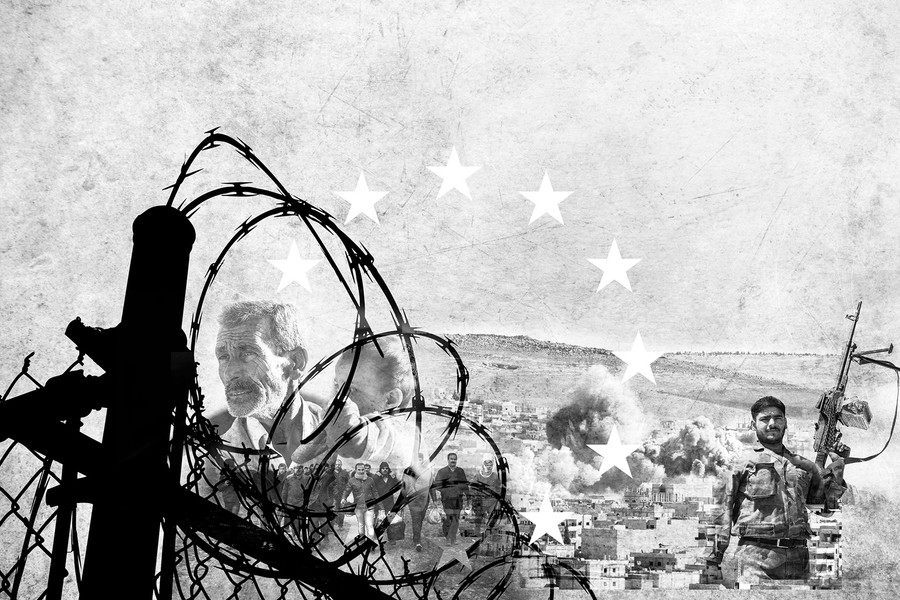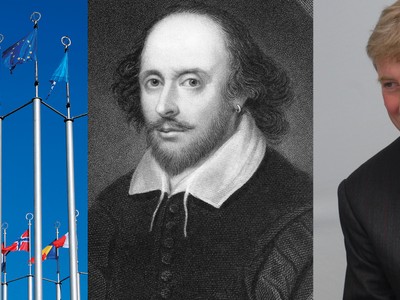Some have compared this with the Thirty Years War that raged between Protestants and Catholics in Europe between 1618 and 1648 and which left Germany devastated. With all its sectarian hatreds, no easy solution presents itself to the vortex of violence in the Middle East.
The contemporary world is a multipolar one and so far it has no stable overarching order, as Henry Kissinger has wisely said. China is increasingly encroaching upon the maritime domains of its Asian neighbours, to growing US concern, for Washington will never accept being extruded from the Pacific either. Russia has created a semi-frozen conflict in Ukraine to join those it created in Georgia and Moldova. The very survival of a united Europe looks to be the central question for 2016. With the US increasingly unwilling to fund European defence efforts that themselves show a lack of resolve, it is that bit more difficult to discern a concerted European purpose. Several of Europe’s post-communist border states are succumbing to nativist chauvinism as they repel migrants, of whom they have no historical experience, never having been colonial powers themselves. Russia’s Putin is using his growing power to disrupt a Europe that cannot decide its own fate.
The very survival of a united Europe looks to be the central question for 2016. With the US increasingly unwilling to fund European defence efforts that themselves show a lack of resolve, it is that bit more difficult to discern a concerted European purpose.
Conflicts over migration have been seen as many parts of Europe resist any central diktat to become multi-ethnic or multi-confessional in character. Tensions have grown in Poland, for instance, since the conservative Catholic Law and Justice Party was elected in December, with wider anxieties as they assert control of the courts and media. With the UK solipsistically tied up in Brexit, and France wrapped up in a unilaterally declared “war” on Islamic terror, it has fallen to Germany to maintain the banner of unification. But there Angela Merkel’s open armed welcome to migrants has caused bitter divisions, notably after sex-starved migrants ran amok in Cologne and elsewhere.
European problems with Greece may also only be deferred as pension and other structural reforms may yet again put the country on a collision course with its northern creditors. Grexit may also cause beleaguered Finland to seek an exit as its EU membership has caused economic constraints. Brexit would be all the more likely if Grexit were to occur. Last November’s terror attacks have made the UK more isolationist, and the timing of the referendum may actually be synchronised with meteorological forecasts from the Aegean and Mediterranean. Cameron may well pull off a Remain majority, but at what price for Conservative party cohesion, for there will be much talk of betrayal?
Already these pressures are seeing the rise of populist parties on both the left and right that share a hostility to free trade, migration, Muslims and globalisation generally
If Brexit follows, Scotland might decide to leave the UK. This might encourage separatist regions such as Spain’s Catalonia to press for independence, with Belgium’s government falling shortly, over whether to recognise the new state or not, as the Flemings but not the Walloons wish. The EU’s Nordic members might then choose to exit too; risks of disillusionment are rising.
The influx of over one million migrants does little to sustain the future of the Schengen Agreement of 1985, a borderless zone of free travel and trade. Continued migration from large parts of West Asia or Africa leaves open channels for the 20 million or so currently affected and displaced by Islamist violence, civil war, state failure or corruption and plain economic collapse.Already these pressures are seeing the rise of populist parties on both the left and right that share a hostility tofree trade, migration, Muslims and globalisation generally.
These pressures are also being seen in the Balkans, the main corridor for mass migration. These areas saw under investment in the post-Communist era and are now reeling under the pressures of the collapsed regimes in Iraq and Syria.
Europe had hoped that its idealistic free market, humanitarian values and social welfare-based culture would have underpinned these newer members and been a beacon to the wider world. However, one can see that following the Cold War, Russia is now able to destabilise the region with its incursion into Crimea and Ukraine. Russia is no longer an institutionally weak state as it was in the post-Soviet era and the US is no longer the sole hegemon as it was after 1989–90. The strongman Putin is not without his admirers among both left and right populists and separatists in Europe either.
At a time when European ideals are floundering, Europe itself clearly needs greater cooperation, integration, risk sharing and sense of common purpose. Instead it appears to be embracing nationalism, Balkanisation, divergence and disintegration.
I am sure that David Cameron wants to stay in Europe. But maybe the referendum was unnecessary, except by the lights of narrow Tory party concerns? We are being asked to vote on the merits or demerits of membership of an entity that seems to be disintegrating, and that may occur much faster if Britain leaves.

